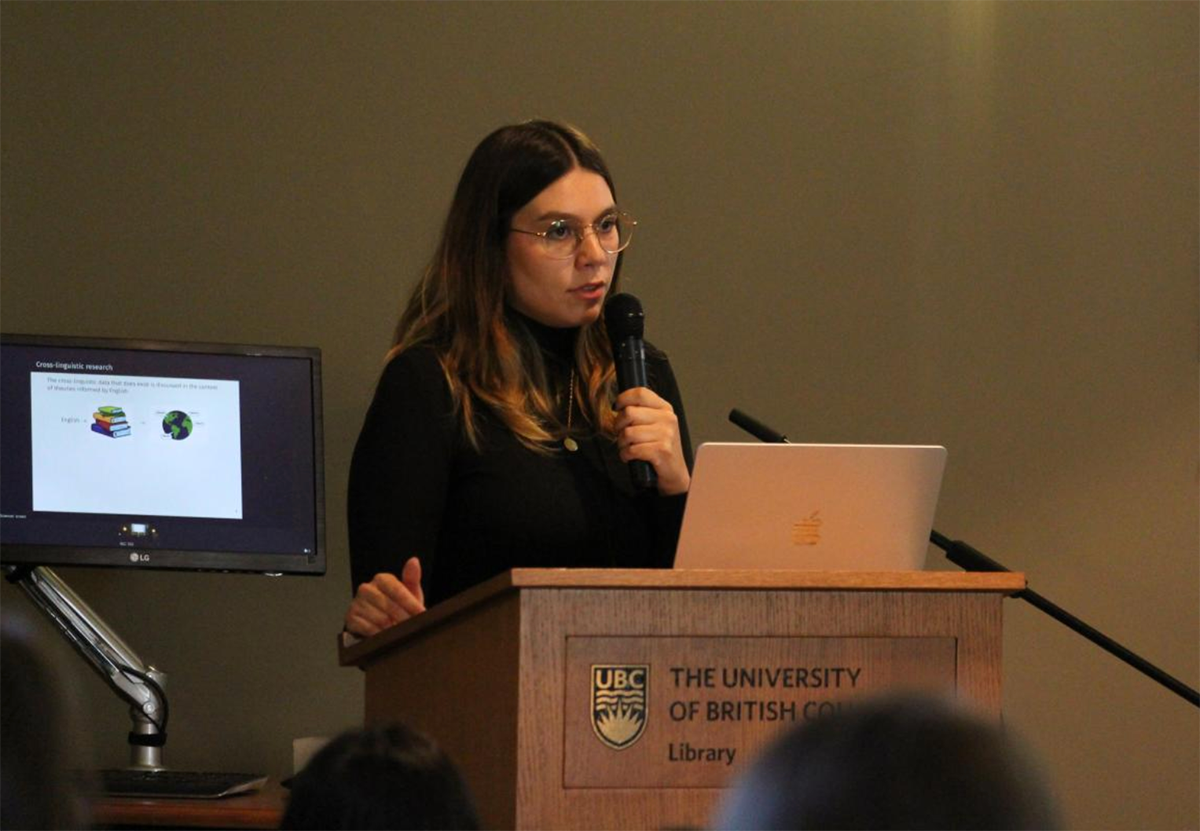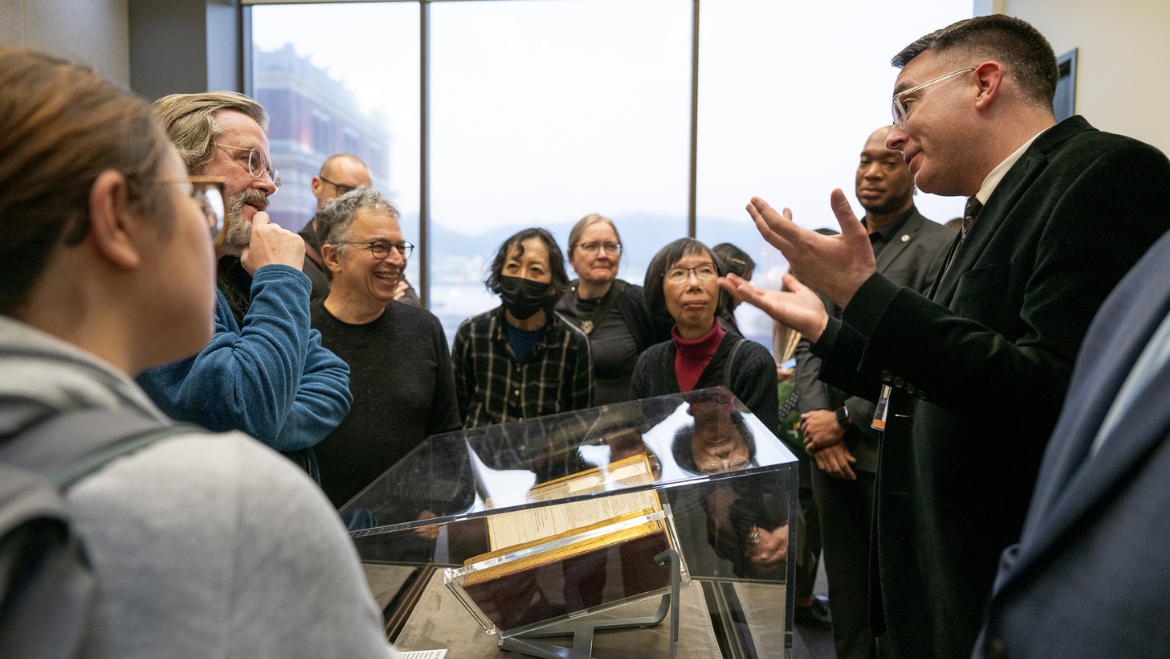

The UBC Public Humanities Hub and Arts Development & Alumni Engagement co-hosted a symposium on November 17-18 to celebrate the 400th anniversary of Shakespeare’s First Folio in partnership with the Social Sciences and Humanities Research Council and Simon Fraser University.
In honour of the anniversary and to celebrate the university’s successful acquisition of the first edition of William Shakespeare’s Comedies, Histories, & Tragedies, the UBC First Folio Research Cluster co-hosted an academic symposium,What’s Past is Prologue: Mobilizing the UBC First Folio. The symposium foregrounded panels and discussions on the history of the Folio, re-contextualized Shakespeare’s work, transitions in culture, and more.
Theatre Studies Assistant Professor Dr. Hallie Marshall leads the UBC First Folio Research Cluster. The cluster seeks to catalyze research collaborations, interdisciplinary partnerships, artistic creations, and community engagement, ensuring that the First Folio will be a valuable research tool, pedagogical tool, and a site for public engagement.
“The symposium provides an opportunity to bring together a diverse group of scholars and artists to explore different aspects of the Folio that will help shape this engagement, while the public events will help ensure that this is not just a scholarly conversation but also a community conversation.”
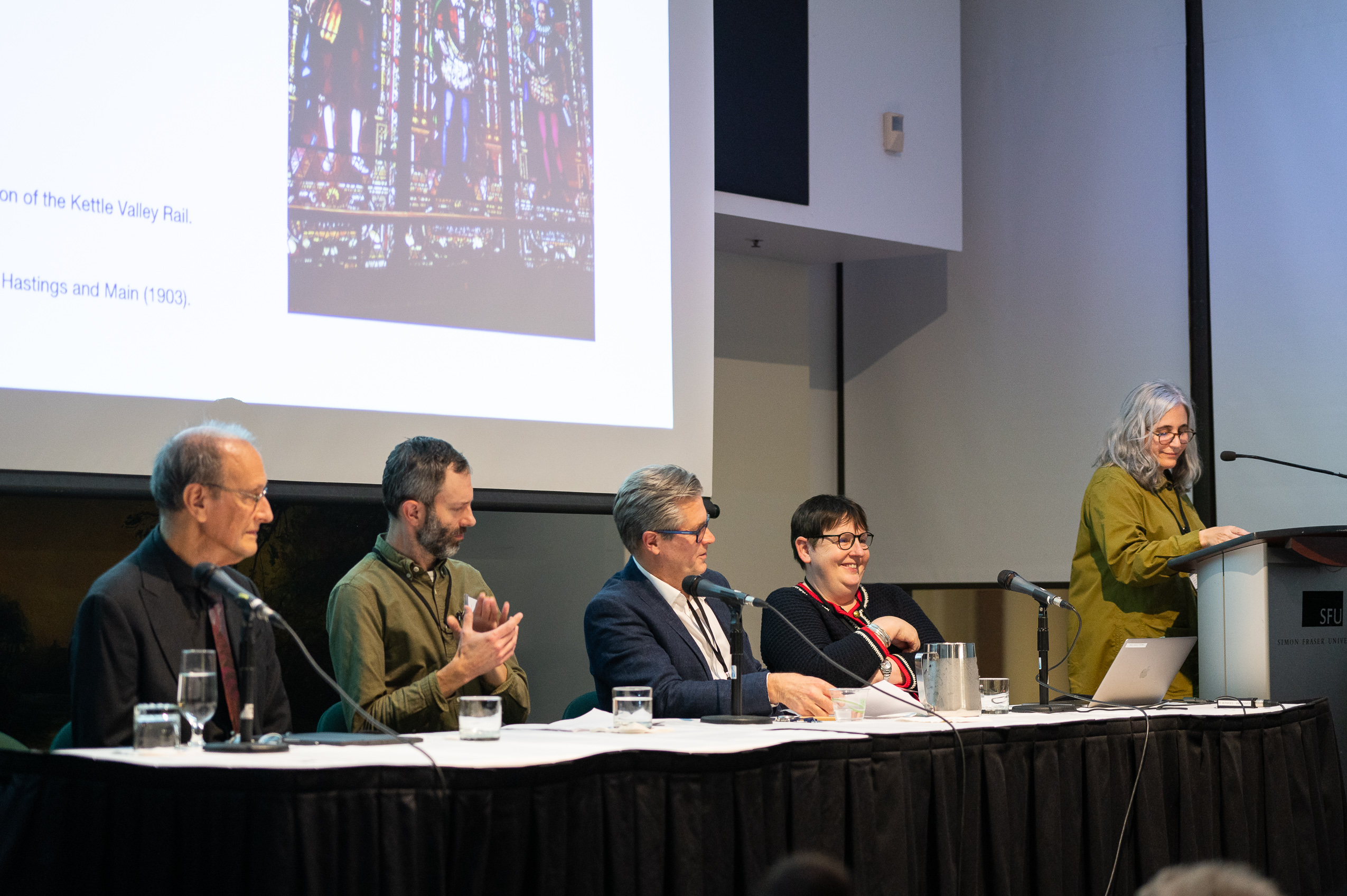
Dr. Patricia Badir with panelists during the public forum.
Panelists at the public forum.
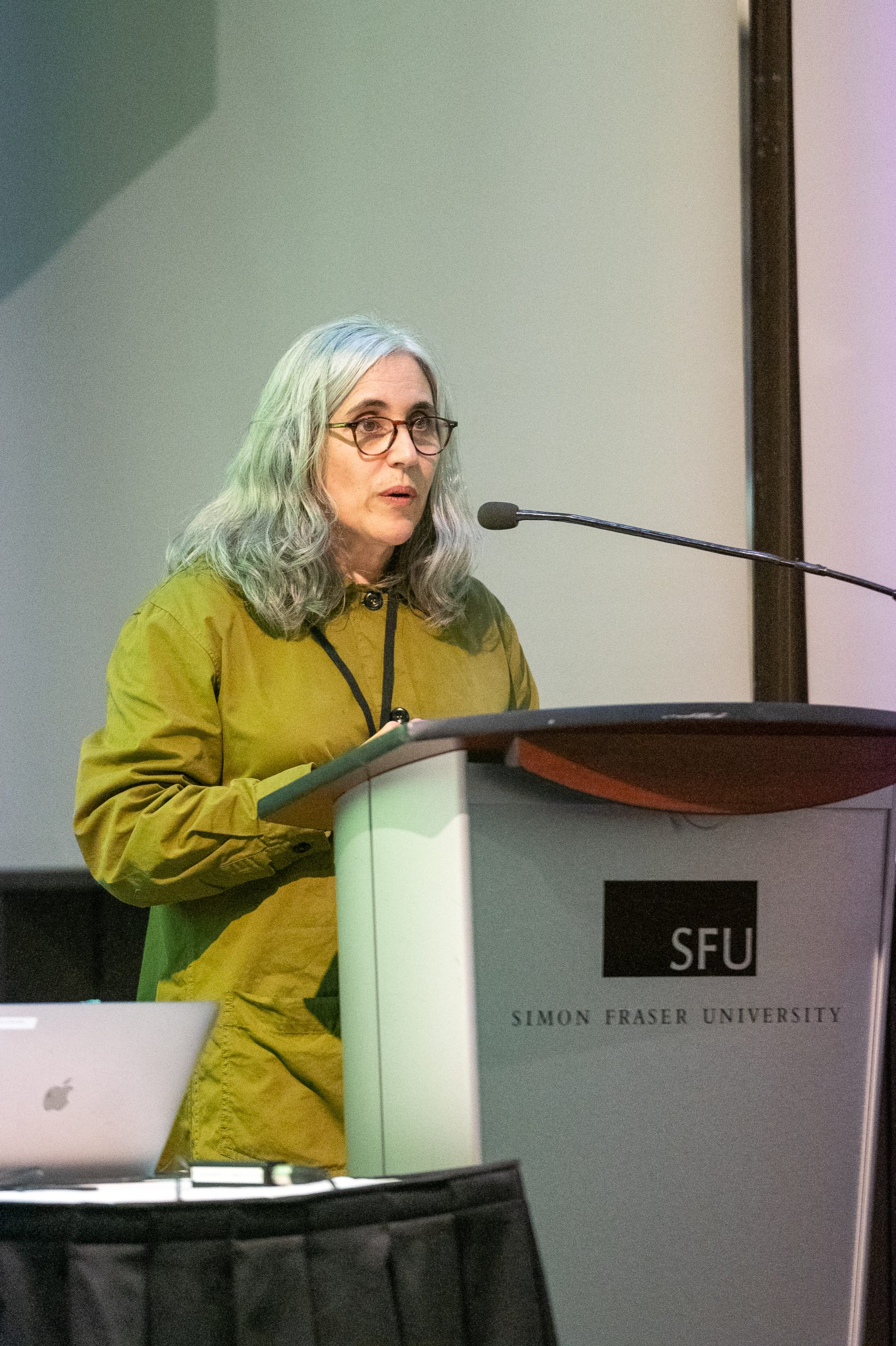
Dr. Patricia Badir
Dr. Patricia Badir was a co-moderater of the panel.

Dr. Paul Budra
Dr. Paul Budra was a co-moderator of the panel.
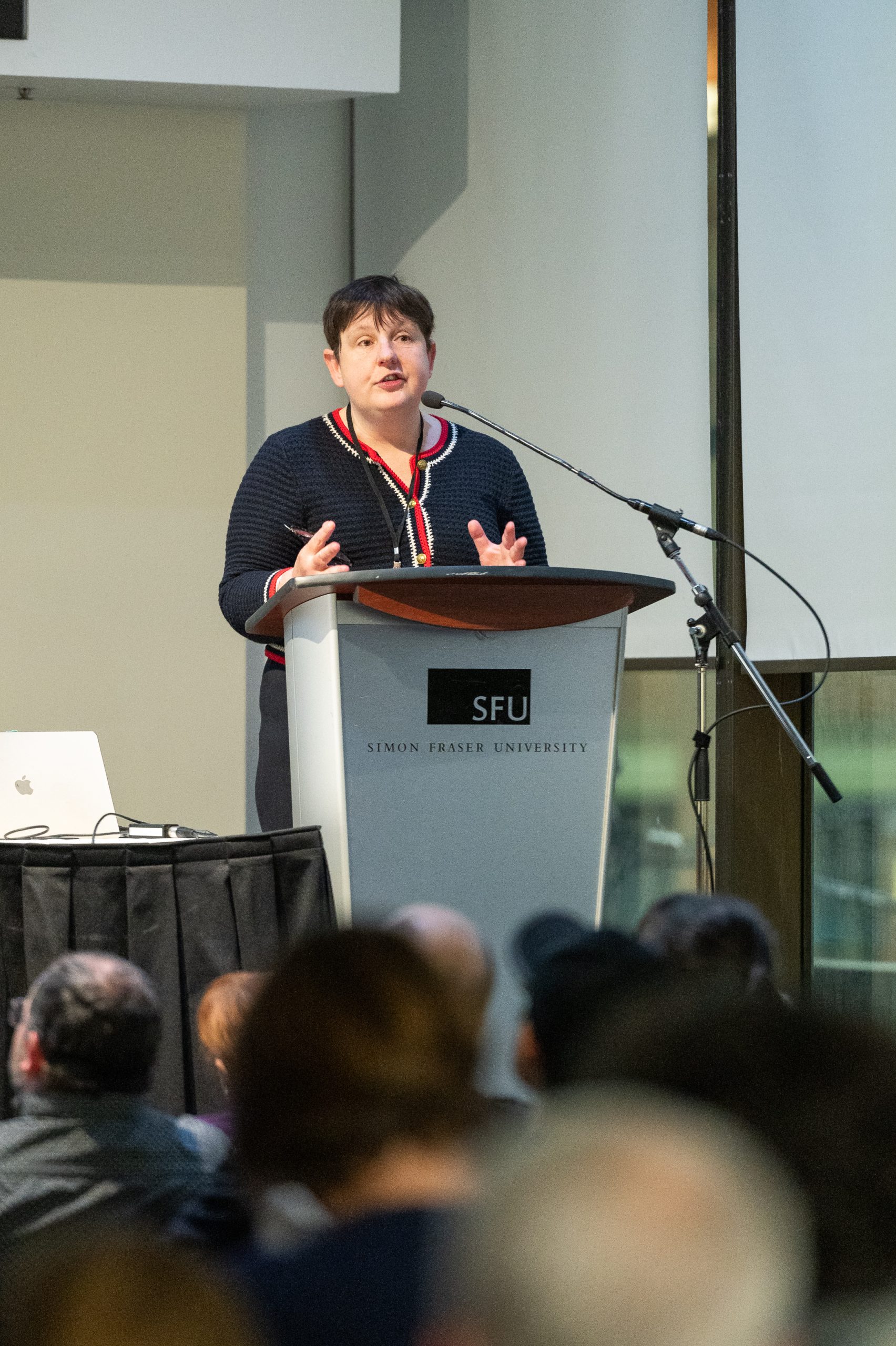
Dr. Emma Smith
Thought-provoking discussions happened during the public forum.
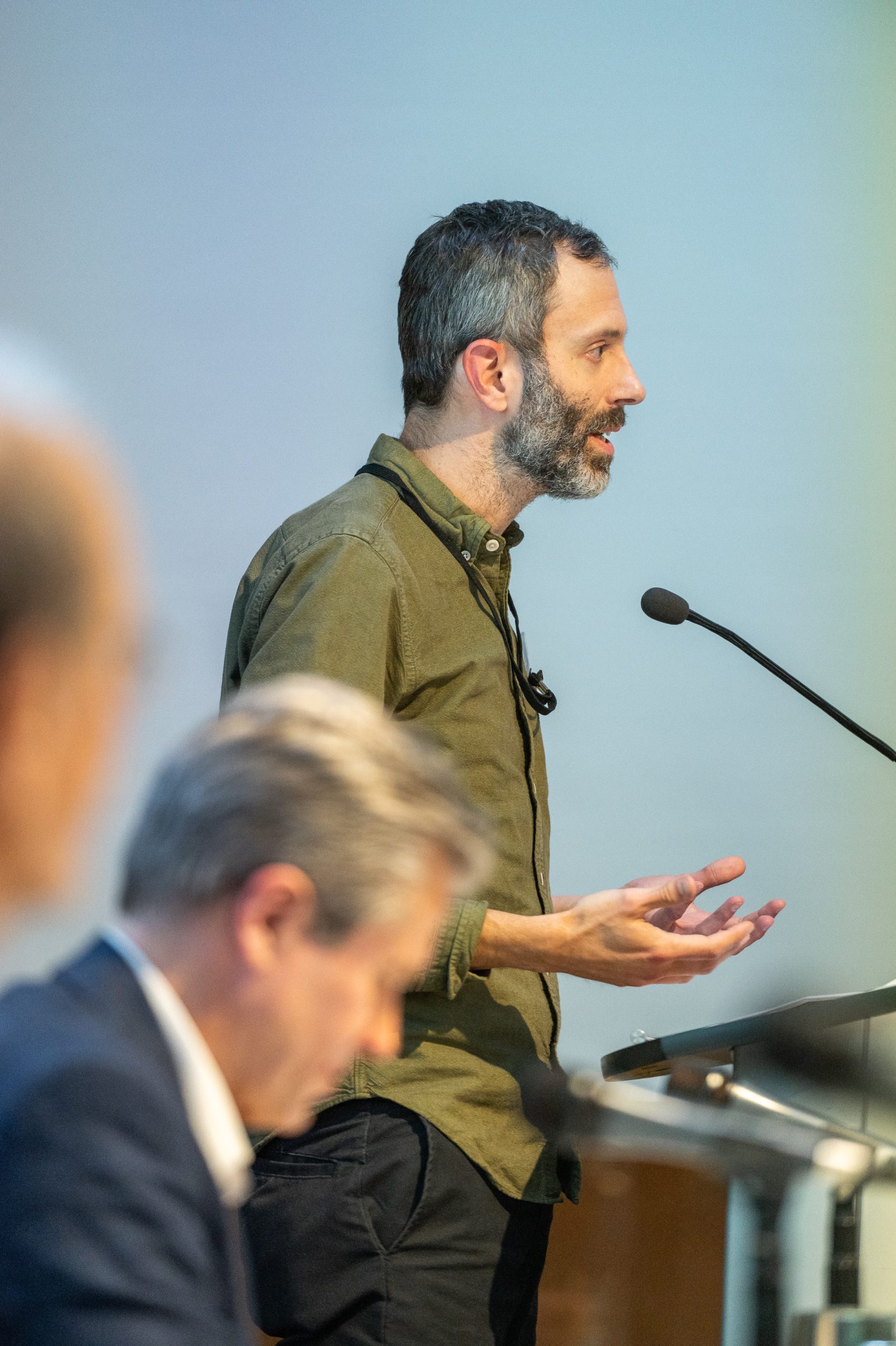
Dr. Aaron T. Pratt
Thought-provoking discussions happened during the public forum.
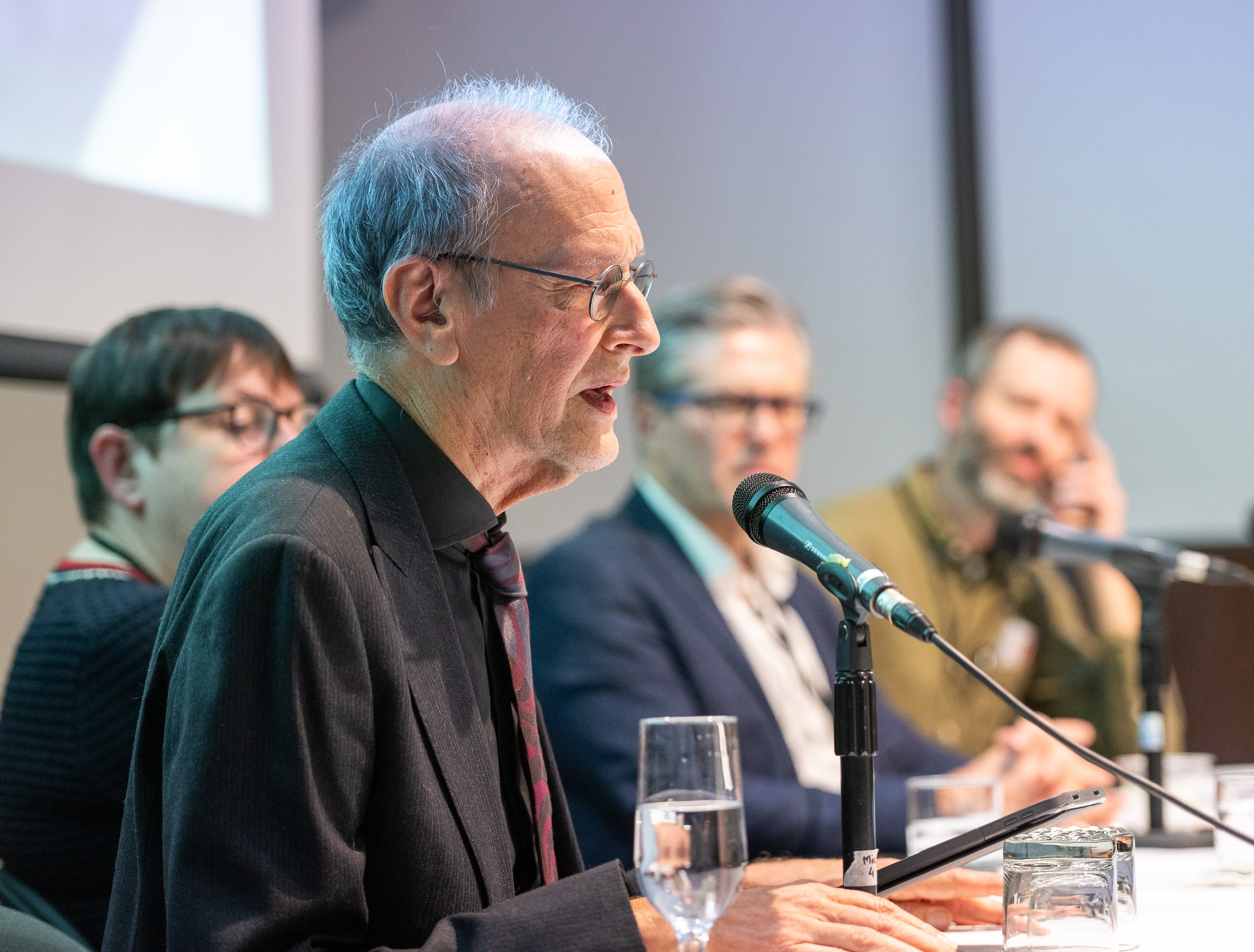
Dr. Linc Kesler
Thought-provoking discussions happened during the public forum.
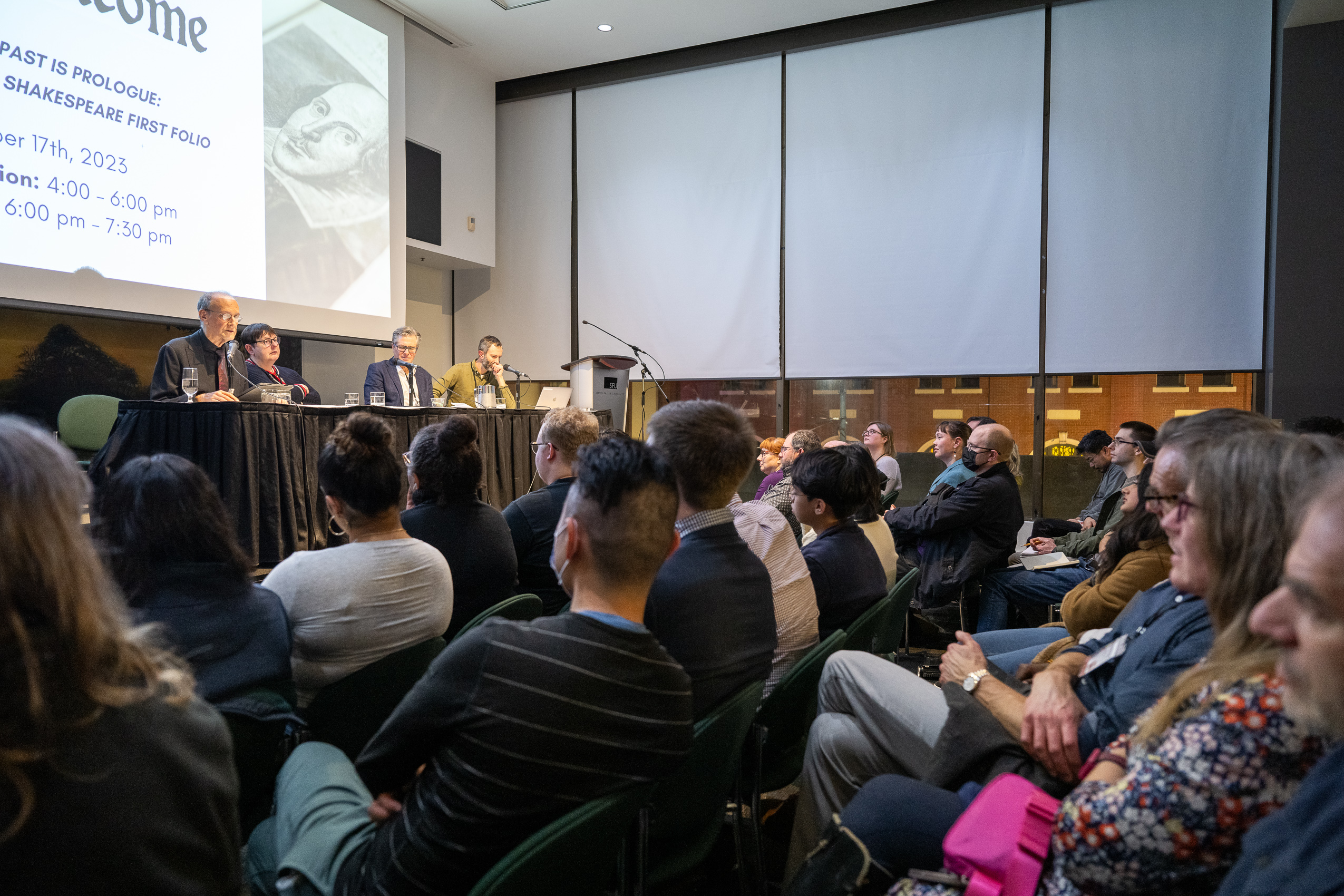
The Public Forum on November 17
Thought-provoking discussions happened during the public forum.
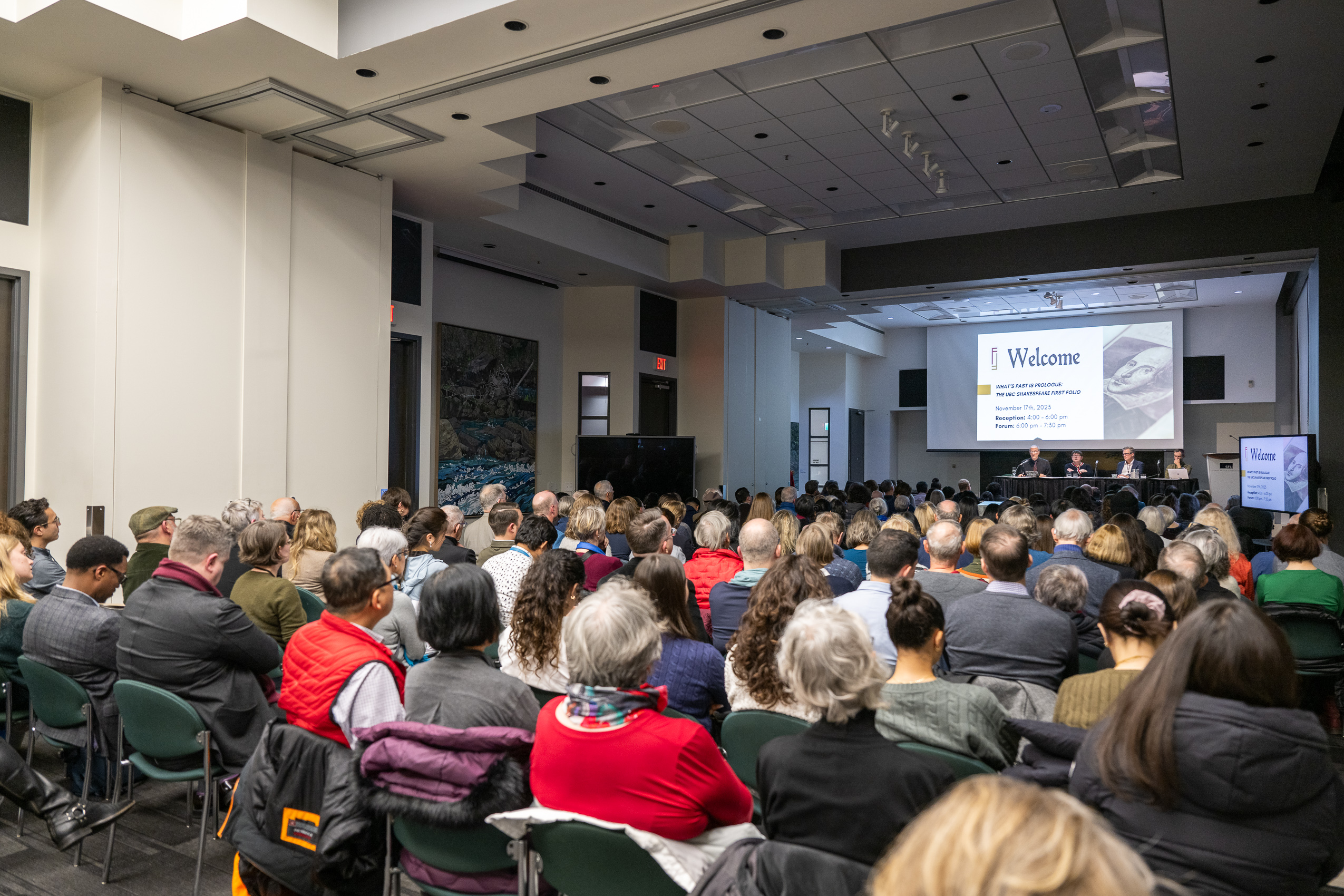
The Public Forum on November 17
The public forum had a successful turnout.
Funded by UBC Arts Development & Alumni Engagement and the Public Humanities Hub, the Public Forum on November 17 was a thought-provoking panel discussion that explored whether the historical book, steeped in the legacies of colonialism and capitalism, can help us re-evaluate and transform our understanding of Shakespeare’s works in modern society.
In collaboration with Bard on the Beach Shakespeare Festival, the first public reading of The Very Book Indeed by Dr. Paul Budra happened on November 18. With compelling performances from Bard on the Beach actors, the one-act play illustrates the story of the complex, arduous endeavour of bringing the First Folio into being. Directed by Moya O’Connell and produced by Dean Paul Gibson and Dr. Patricia Badir, the witty and playful production introduced the key historical figures and delightful invented characters as it weaves text from Shakespeare’s folio into the story of this heroic project.
Dr. Paul Budra, a professor in SFU’s Department of English, shares that when Dr. Badir presented the idea for the First Folio Symposium, both of them wanted to involve Bard on the Beach. Their initial thought was to have the actors perform excerpts from the Folio; but they also wanted to provide a framing device. Therefore, Dr. Budra wrote a scene, and to their surprise, their collective liked it. He exclaims that watching the incredibly talented individuals at Bard bring the play to life has been an unforgettable experience.
The sold-out symposium wrapped up with substantial success, and we asked Dr. Badir and Dr. Gregory Mackie to share their thoughts on the acquisition of the First Folio and this significant symposium.


Dr. Patricia Badir
Department Head and Professor at Department of English Language and Literatures
Dr. Patricia Badir co-hosted the Shakespeare Symposium and specializes in Renaissance drama and poetry. She has a keen interest in religious writing, as well as early twentieth-century Canadian theatre. Currently, she is working on multiple projects, one of which is exploring what it means to study Shakespeare and the early modern past from a contemporary standpoint.
Can the First Folio be used to initiate conversations about the enduring effect of colonialism and capitalism on society?
Yes, and it already has. When we were putting these events together, we had two goals:
The first was to bring to UBC senior and emerging scholars and theatre practitioners whose work could help us better understand this new acquisition. Our speakers brought a range of perspectives and approaches that created a productive tension between the wonder and admiration we share for Shakespeare’s work and our understanding of the mechanisms of power and control that Western print culture in general, and Shakespeare in particular, have enabled.
Our second goal was to affirm that our copy of the Shakespeare First Folio is special because it is here. For instance, the fact that the Folio is housed in the Rare Books and Special Collections Library directly across from, and thus in conversation with, the Indian Residential School History and Dialogue Center suggests that it doesn’t make sense to separate our work with the Folio from the place in which that work gets done.
What role does the First Folio play in the contemporary understanding of Shakespearean literature and its relevance to modern society?
I like to think of the Folio as a kind of time traveller. It started out in London at the Jaggard Publishing House in 1623. It has been owned by aristocrats, artists, businessmen, scholars, and explorers. It has travelled across England, New York, and Japan before it came to UBC. It bears the stories of these travels and the marks of these readers within its pages. So, I think its relevance is really a product of its strangeness and what it can tell us, not just about Shakespeare’s world, but all of the worlds it has travelled through.
How can UBC ensure that cultural artifacts like the First Folio are made accessible and inclusive to all members of society?
Good question! UBC First Folio is now available to the whole world through the digital facsimile that the UBC Library has prepared for us — so in that sense, the book is accessible to anyone who is interested and who has an internet connection.
However, because digital facsimiles of Folios have been widely accessible for some time now, the real value of having a Folio here at UBC is that we can actually get close to it. I hope that we can continue to find ways to bring the book into the world, like the public forum event. I also hope that the book will be more to us than a rarefied icon locked in a glass case, surrounded by fierce-looking security guards. That’s not my definition of accessibility. I feel strongly that UBC has a responsibility to make sure that cultural artifacts like the First Folio are made accessible — not just to faculty, students, and staff but to the broader community. If we actually use the book, it will eventually show signs of that use. This reality doesn’t bother me. Nothing is really “for all time” despite what Ben Jonson says.
Also, it is the signs of other readers’ use that make old books interesting (ask me about the tea cup stain on Hamlet). However, it is also the case that UBC is now the steward of this book, and we, therefore, have a duty to preserve it. So the question of access is very sticky. We haven’t answered it yet, but we are working on it.
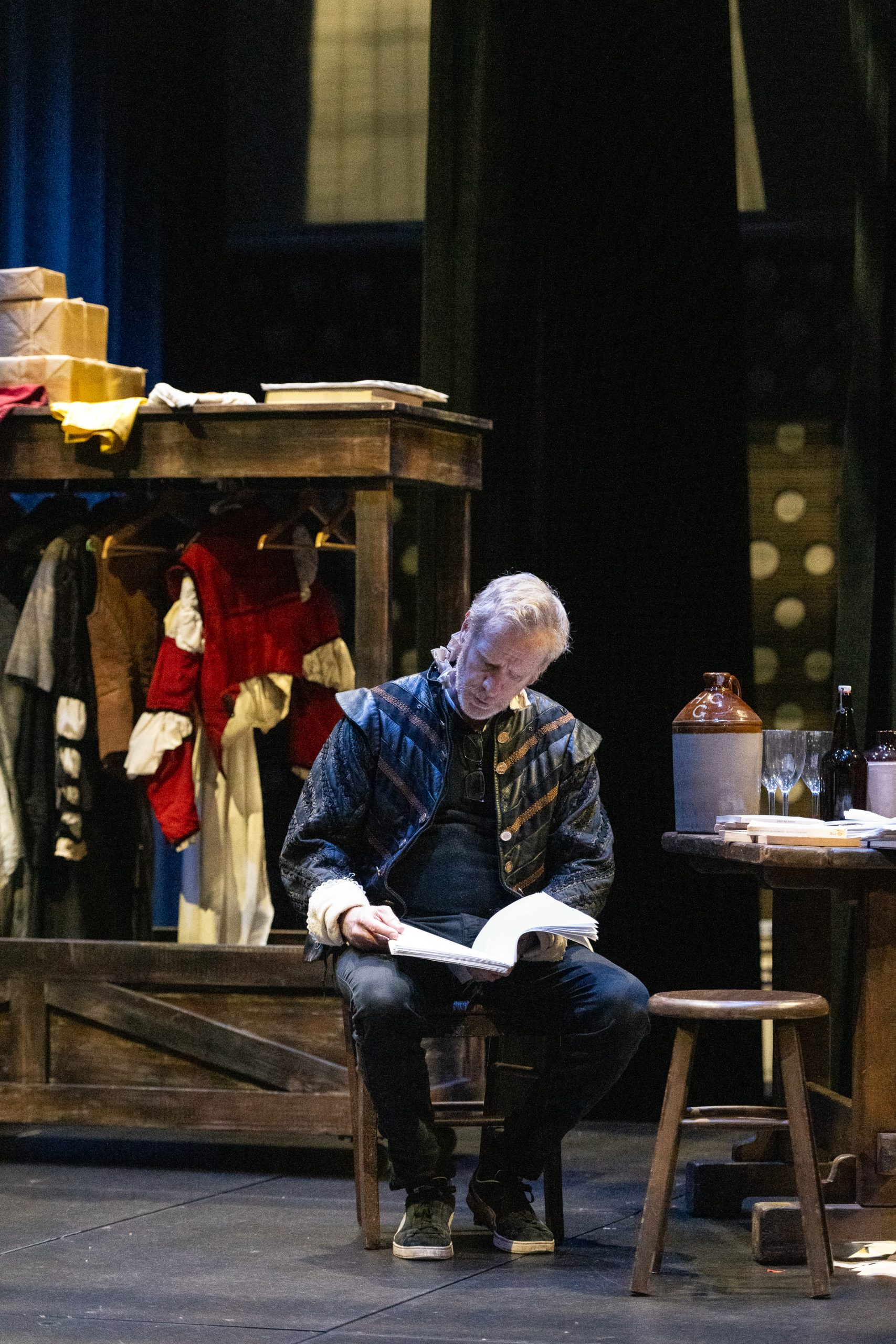
Bard on the Beach actors at dress rehearsal for The Very Book Indeed.
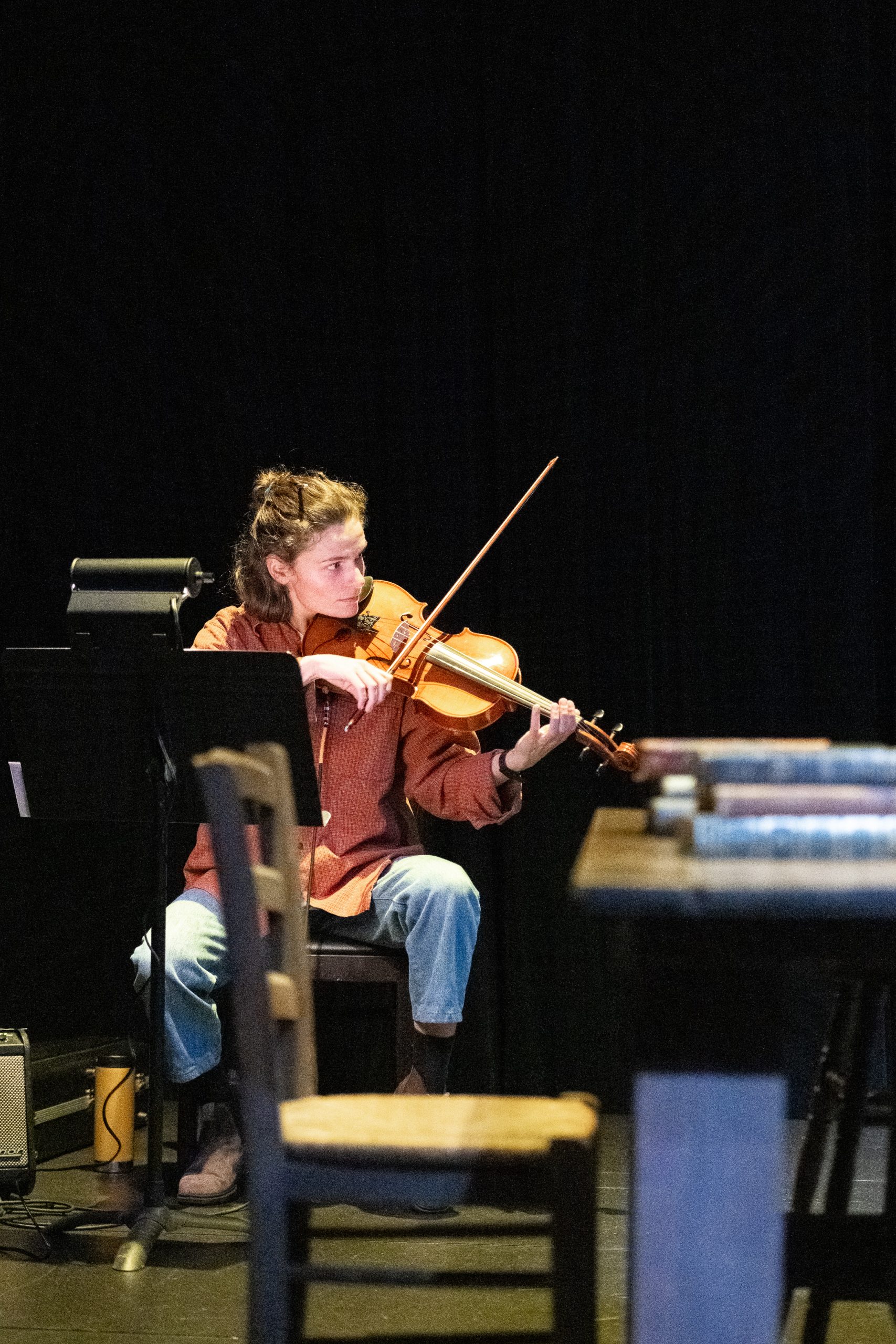
Bard on the Beach actors at dress rehearsal for The Very Book Indeed.
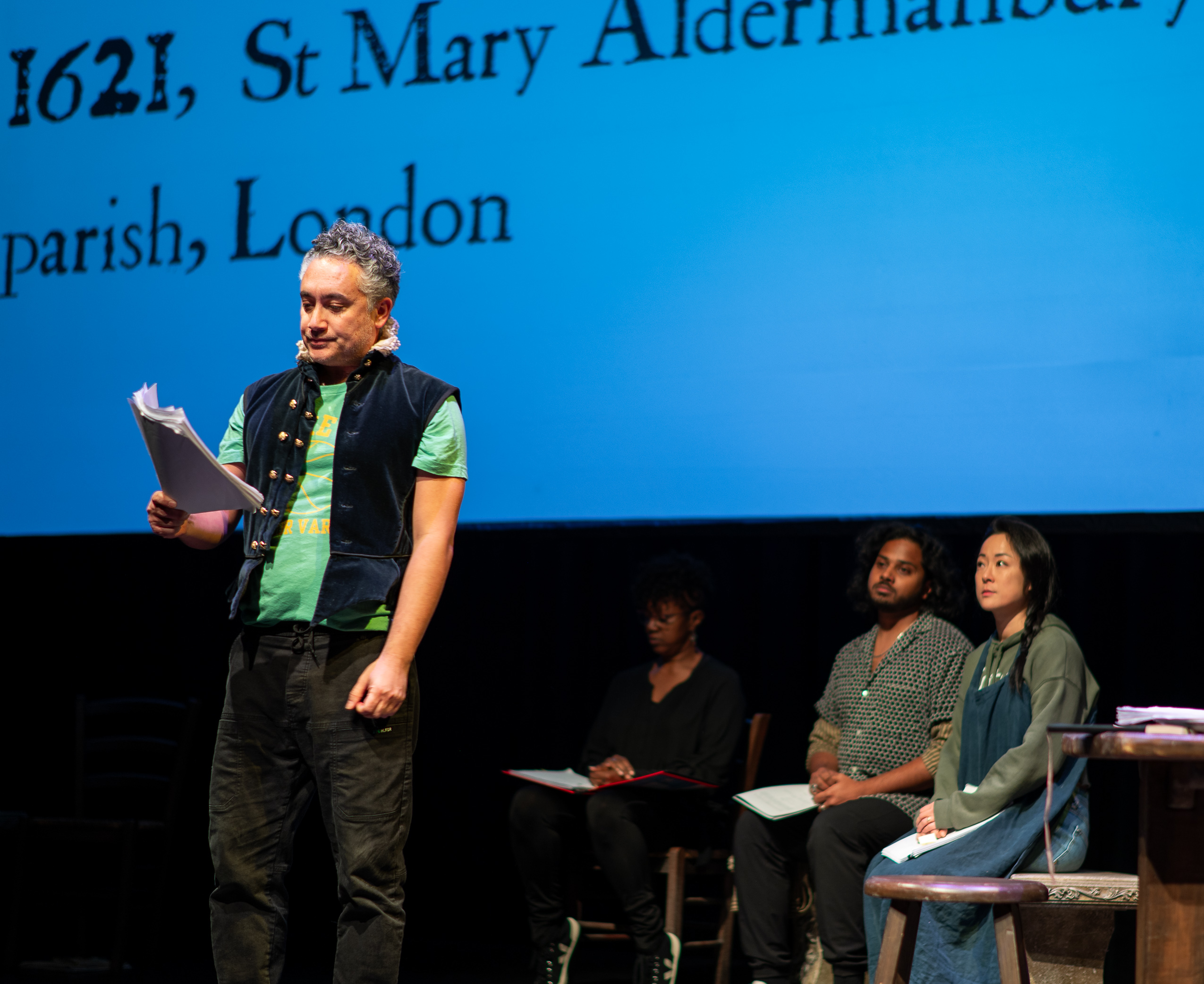
Bard on the Beach actors at dress rehearsal for The Very Book Indeed.
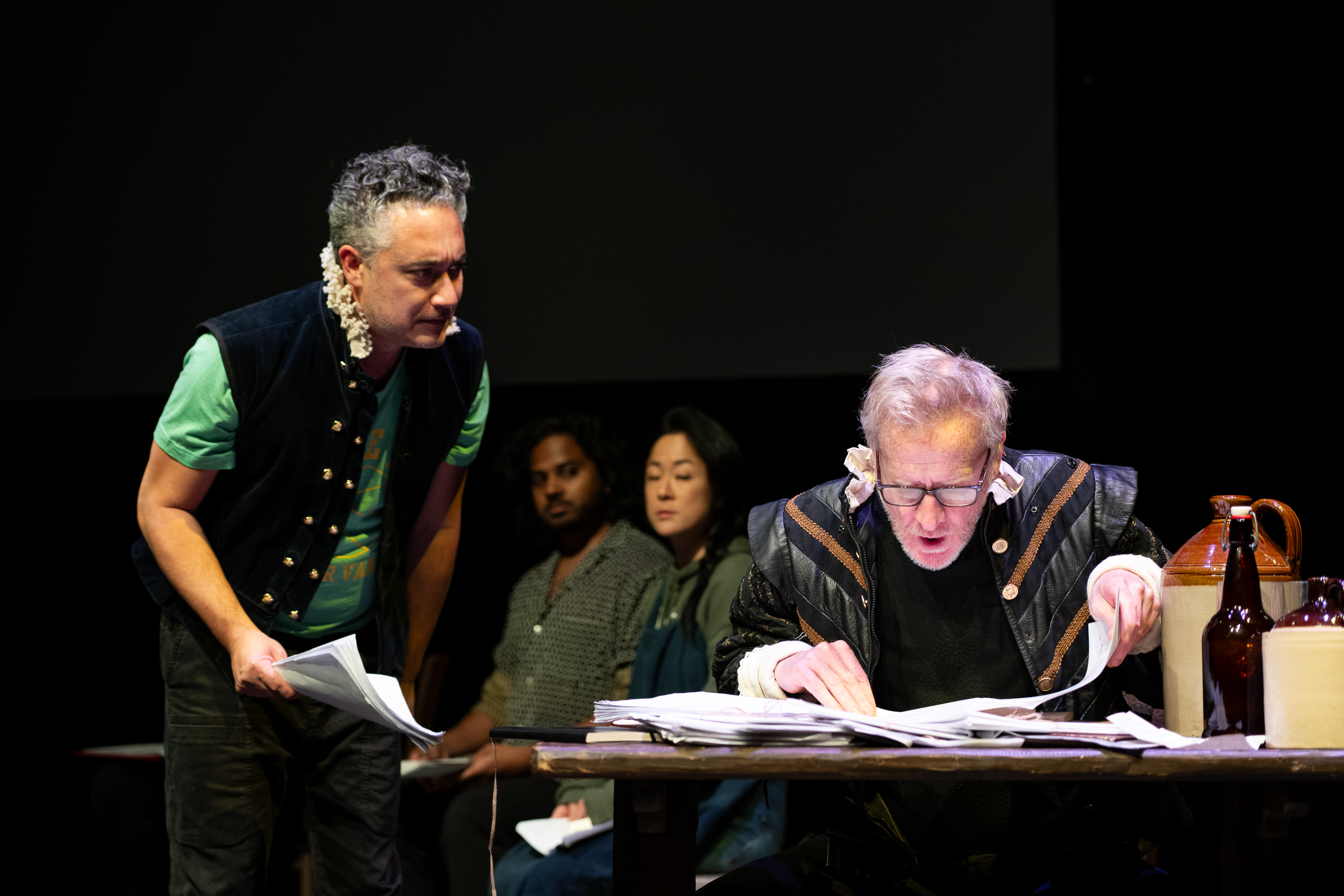
Bard on the Beach actors at dress rehearsal for The Very Book Indeed.
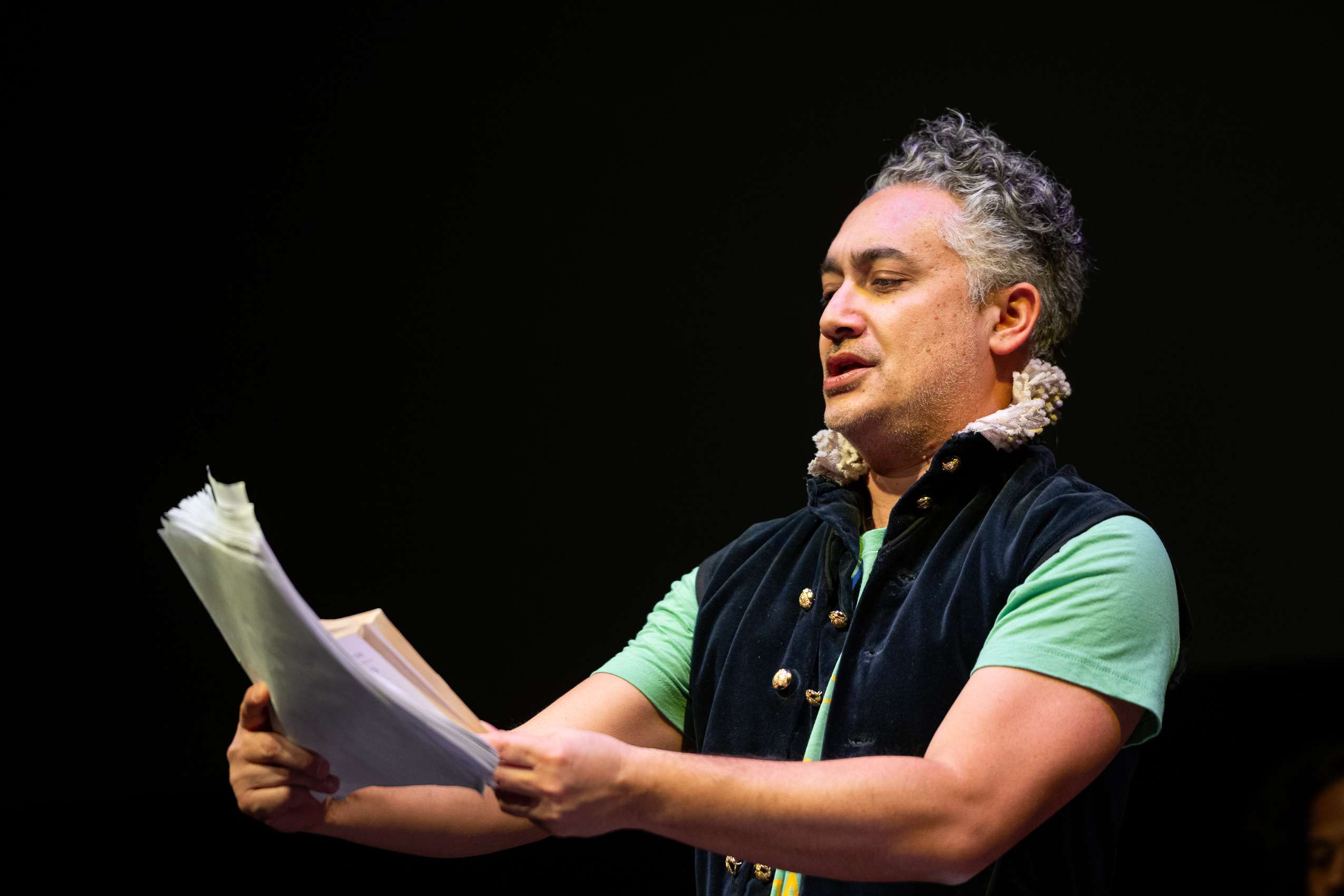
Bard on the Beach actors at dress rehearsal for The Very Book Indeed.
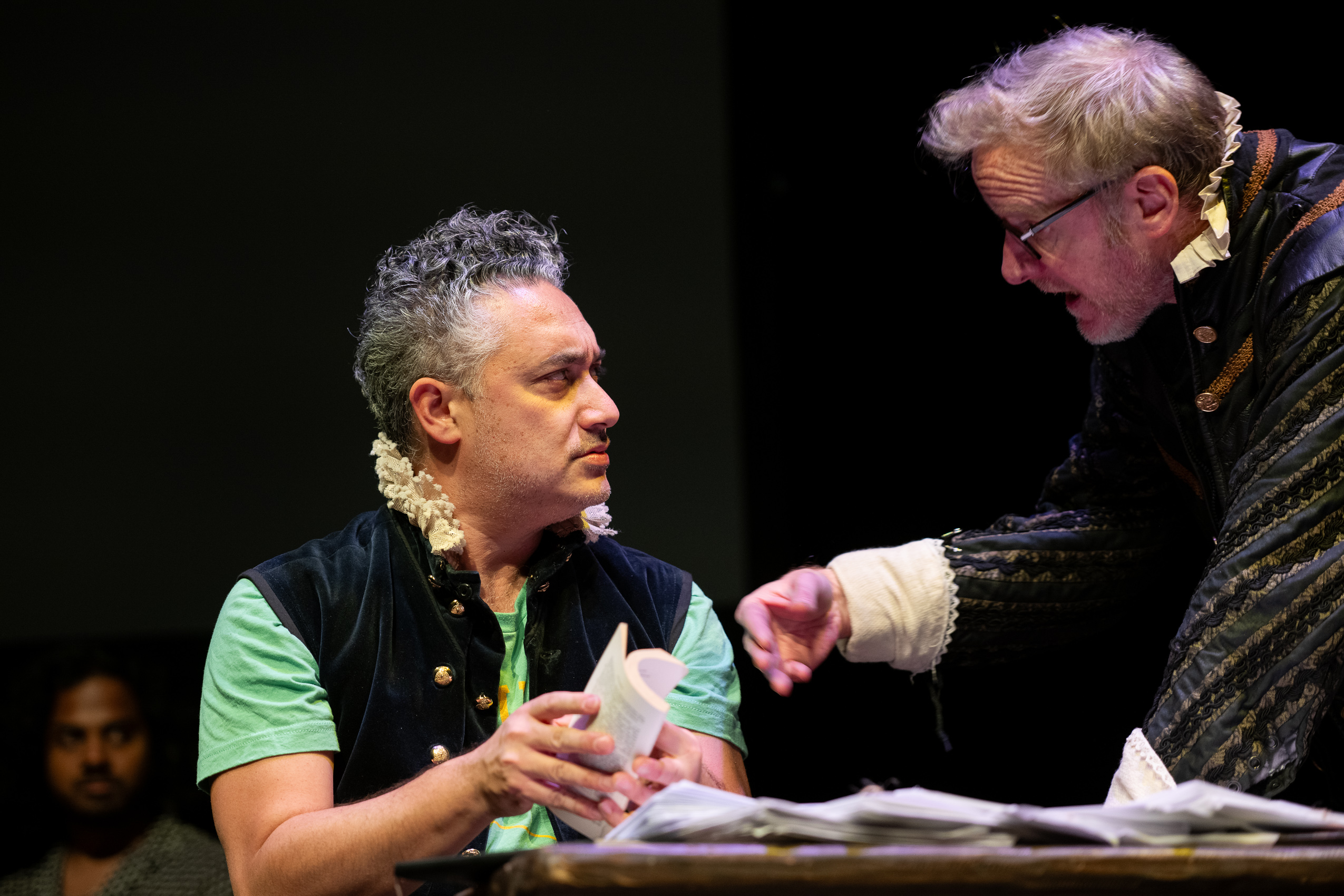
Bard on the Beach actors at dress rehearsal for The Very Book Indeed.
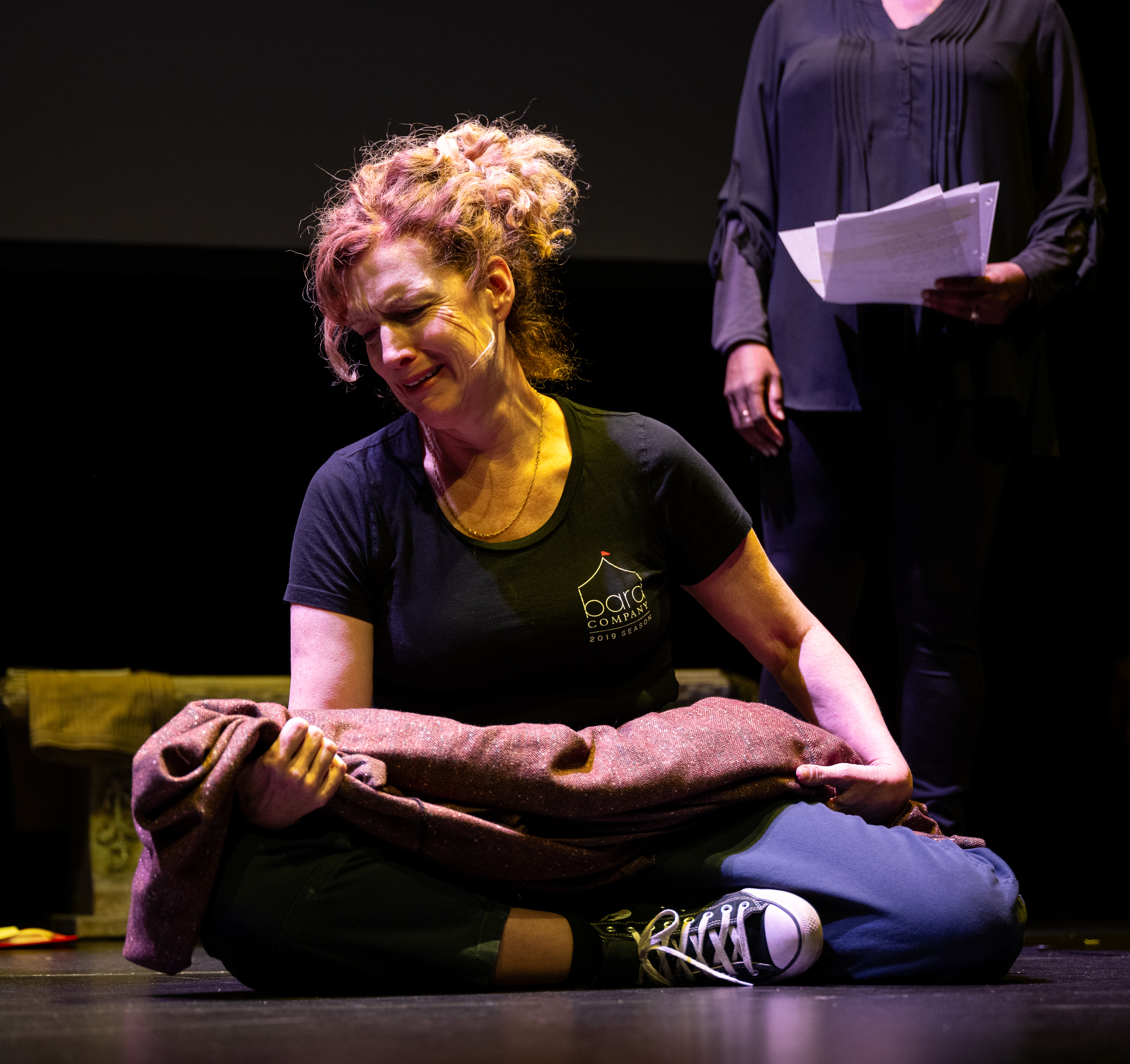
Bard on the Beach actors at dress rehearsal for The Very Book Indeed.
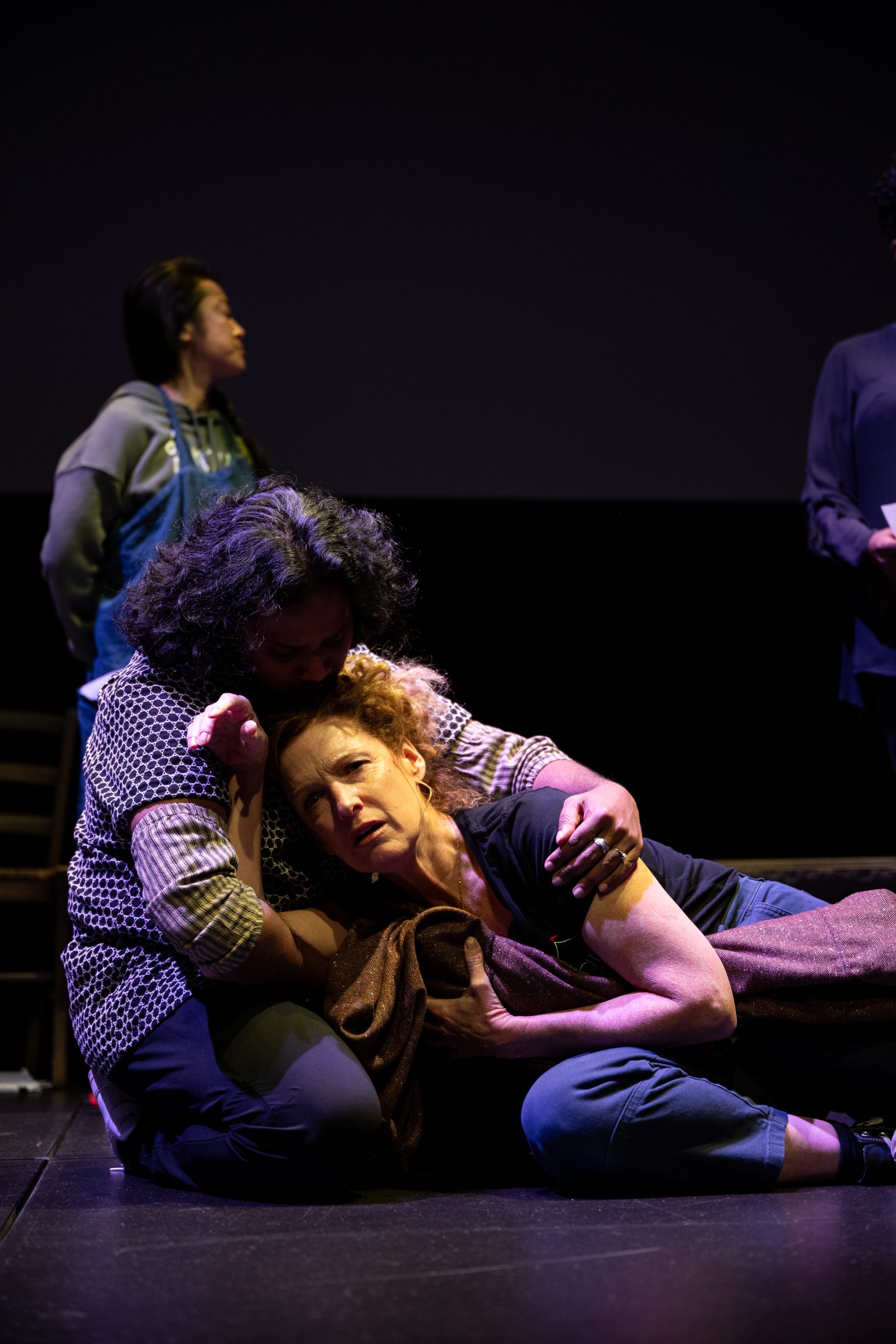
Bard on the Beach actors at dress rehearsal for The Very Book Indeed.


Dr. Gregory Mackie
Associate Professor in Department of English Language and Literatures
Dr. Gregory Mackie was a part of the team that acquired the First Folio in 2021. He is an Associate Professor in the Department of English Language and Literatures and the Norman Colbeck Curator in UBC Library’s Rare Books and Special Collections. In 2022, he co-curated the For All Time exhibition that drew 45,000 attendees to see the Folio at the Vancouver Art Gallery. Dr. Mackie talked about the First Folio at the reception during the public panel.
What is the desired impact of the symposium on the attendees, and how do you envision it will affect their interpretation of Shakespeare’s work in the future?
First, we hope the public forum attendees enjoy themselves and learn something they didn’t know before whether that’s about the book itself, Shakespearean drama, literary history, or any combination of those. We also hope that the discussion might prompt people to think through some difficult questions and consider this near-priceless book in terms of the place it now inhabits.
Can the First Folio be used to initiate conversations about the lasting impact of colonialism and capitalism on society?
Absolutely. For centuries, the Folio has been associated with cultural prestige and material value. It’s the bookish equivalent of what biologists and conservationists call “charismatic megafauna” when talking about animals; it tends to attract a lot of attention.
We are delighted to have this book in Vancouver. It is only the second copy in all of Canada, but we are cognizant of how First Folios, as material objects, have been made to represent something other than the words on the page. In the nineteenth and early twentieth centuries, in particular, Shakespeare’s work has been put to uses that the playwright himself could never have imagined, namely in the service of British cultural imperialism.
What role does the First Folio play in the contemporary understanding of Shakespearean literature and its relevance to modern society?
I’d turn that question around. The Folio is like a time machine: it connects us with the difference and strangeness of the past, and in the process, it can inspire curiosity and even wonder.
Instead of asking about its relevance to contemporary society, we might also ask how and why contemporary society has become willingly disconnected from, and often incurious about, the richness and strangeness of the past.
This two-day symposium, including a public forum and a public reading, was made possible by the joint efforts of the UBC Department of English Language & Literatures, SFU English, Bard on the Beach, UBC Public Humanities Hub, UBC Theatre and Film, UBC Arts Development & Alumni Engagement, and the UBC Faculty of Arts.

